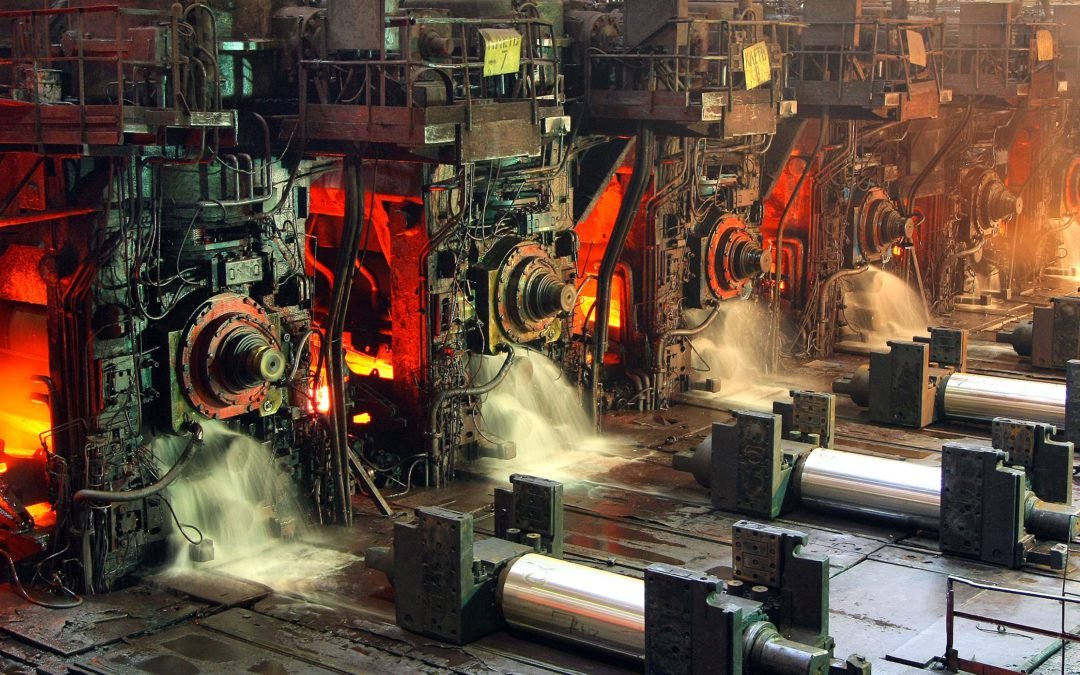Introduction to Corten Steel
Cor refers to the metal’s property of corrosion resistance. Ten denotes the metal’s tensile strength. Corten steel is also known as weathering steel and it is another name for corten steel. Its branded trademark COR-TEN steel is also used to identify it. Corten Steel was created to avoid the need for painting, and if left outside and exposed to the weather for a few months, they will rust.
What is Corten Steel Made Of?
We all know what corten steel products looks like because of its instantly recognizable rust coloration, but how does that orange hue form, and what distinguishes corten steel from conventional steel? Corten steel, commonly known as weathering steel or COR-TEN steel (the official trademark), is an iron-based alloy with minor additions of carbon, silicon, manganese, and other metals. Its chemical makeup distinguishes it from ordinary steel (carbon steel or mild steel), giving it significantly higher weather resistance.
The self-protecting rust coating that accumulates over time provides this weather resilience. When it is first created, it resembles carbon steel, but once it is exposed to the elements, the weathering process begins. Over the course of 9 months, the surface of the corten steel reacts with air and water to develop the rusty coating. It will gradually deepen over time, becoming the deep orange color associated with weathering steel. The weathering process deepens the patina, leaving a gorgeous orange covering on each piece, making it one-of-a-kind. This coating then protects itself by preventing further corrosion beneath the outer layer.
Corten Steel Properties
Maintenance and lifespan are two of the numerous advantages of Corten Steel. Other Corten Steel Properties include the low maintenance that the steel needs which is appropriate for structures where maintenance is difficult or risky, such as bridges, or where interruption is required, such as around major roads or trains.
Corten steel can be built faster than other types of steel since processes like painting can be omitted. The rust appearance that develops on Corten Steel can extend the life of the application due to its corrosion resistance, making it a more cost-effective alternative.
The protective layer’s corrosion-retarding effect is due to the specific distribution and concentration of alloying elements in it. When exposed to the elements, the layer that protects the surface develops and regenerates constantly. To put it another way, the steel is allowed to rust so that the protective coating can form.
With knowing about the properties of Corten Steel, the most frequently asked here is why corten steel and not stainless. The difference between Corten steel vs stainless steel is what we have discussed in our next section.
Corten Steel vs Stainless Steel
Corten steels having a unique rust-like orange hue are referred to as Corten. They were created to avoid the need for expensive finishing and refinishing in industrial applications.
Corten Steel’s Advantage is that it is one of the hardest-wearing corrosion-resistant steel grades available, with its distinctive finish becoming a popular aesthetic for outdoor architecture projects because of its remarkable intersection of corrosion resistance and tensile strength.
However, just like advantages, there are certain drawbacks also available to that.
Corten Steel Drawbacks is that determining the weathering rate of Corten steels might be challenging because contaminants that catalyze patina formation are present in lower amounts in rural areas. They’re also unsuitable for applications that require corrosion-resistant steels to prevent the intrusion of more aggressive chemicals or where hygiene is a key consideration.
After knowing about Corten steel, let’s move ahead to Stainless steel’s advantages and drawbacks so it is easy for the reader to choose which one is more suitable for their business.
Stainless steel, due to its tremendous versatility, stainless steel is by far the most well-known family of corrosion-resistant steel. The key chemical component of interest in stainless alloys is chromium, which is often present in concentrations of >10%, as well as a lower carbon content. Passivation of chromium on the surface of stainless steel plates results in an inert patina that is imperceptible to the human eye. This gives intrinsic resistance to corrosive conditions such as acidic and galvanic corrosion.
Stainless steel grades give a solid measure of corrosion resistance against a wide range of corrosives, with a large range of grades available for various uses. The self-repairing thin protective film reduces the possibility of corrosive effects spreading into the bulk material as a result of localized surface damage. In addition, its surface will not peel away over time.
Stainless Steel’s Drawbacks are that although abrasion-resistant stainless alloys are available for specialized applications, stainless steel is not as hard-wearing as Corten steel grades. It also doesn’t have the same unique finish as weathering steel, however, this is mostly a personal preference.
After knowing the key differences between corten steel vs stainless steel, it would now be easy for the reader to choose the right kind of steel for their business needs.
Corten Steel Alternatives
Corten steel is widely used and has been accepted for various projects. However due to its weathering condition and drawback it can get rusted if left exposed. In such conditions an alternative that would be highly suitable against Corten steel is aluminum. Aluminum building components have a longer lifespan, because of the metal’s natural corrosion resistance. The same natural oxide “skin” that protects aluminum against corrosion also protects it from the elements. Aluminum’s strength and durability, especially when powder coated, have led to its use in a variety of applications.
Conclusion
Dinesh Tube is a global corrosion-resistant steel supplier with a secure chain of high-quality steel mills spanning Europe. We offer Corten steel as well as a variety of stainless steel grades for a variety of industries. If you would like to learn more, please call us and ask to speak with Dinesh Tubes.


Recent Comments